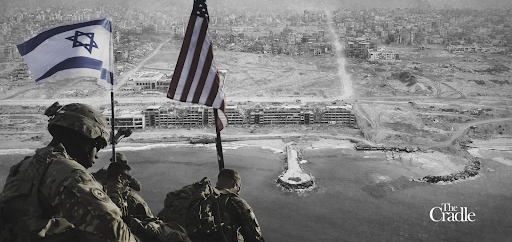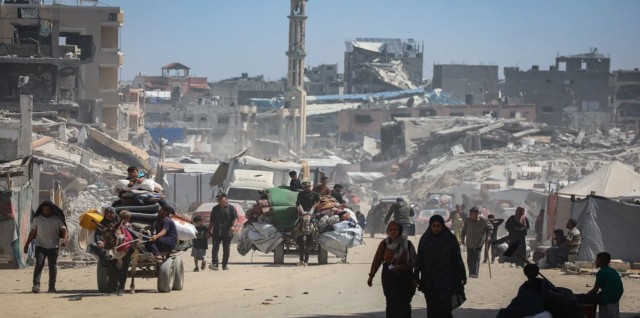
(Photo Credit: The Cradle)
Israeli Military Assault on Gaza Raises Humanitarian Concerns
The ongoing Israeli military assault on Gaza has garnered significant international attention due to its devastating impact on civilians, particularly women and children. With over 35,000 civilian casualties reported since the conflict began last October, concerns about the humanitarian crisis in Gaza have intensified.
One of the most alarming aspects of the situation is the denial of humanitarian aid to the people of Gaza. Despite the urgent need for assistance, Israeli authorities have obstructed the delivery of essential supplies, exacerbating conditions in the besieged territory. The refusal to allow aid into Gaza has led to cases of famine, further exacerbating the suffering of the population.
The international community, including the recent ruling by the International Court of Justice (ICJ) demanding immediate access to aid for Gaza, has condemned Israel's actions and called for an end to the blockade. Additionally, the United Nations Security Council has repeatedly proposed resolutions advocating for a ceasefire in Gaza, only to be vetoed by the United States, further complicating efforts to address the crisis.
Amidst mounting criticism, particularly from university campuses across the United States, there has been a resurgence of the Palestinian solidarity movement. This grassroots movement has galvanized support for the people of Gaza and has prompted calls for accountability from both Israel and the United States.
The White House has been pressured to address the situation, especially in light of the upcoming November elections. While President Joe Biden initially supported Israel's assault on Gaza, there has been a shift in rhetoric, with Biden now threatening to curtail the transfer of offensive munitions to Israel.
One unexpected development in the midst of the crisis was Biden's announcement during his State of the Union address on March 7th. He directed the US military to establish a temporary pier on the Gaza coast to facilitate the delivery of humanitarian aid. While presented as a humanitarian gesture, this initiative has raised suspicions about its true motives and implications.
Critics argue that the establishment of a temporary pier in Gaza could be a strategic move by the United States to mitigate international criticism while advancing broader geopolitical objectives in the region. Questions have been raised about the necessity of building a sea pier when land border crossings could facilitate the immediate delivery of aid.
Furthermore, concerns have been raised about the operational logistics of the maritime corridor, particularly regarding Israeli inspections in Cyprus and the potential delays and complications they could cause. The reliance on the Netzarim Corridor, a fortified road controlled by the Israeli army, for the distribution of aid within Gaza also raises questions about the true intentions behind the humanitarian effort.
Despite the potential benefits of the maritime corridor in providing some relief to Gaza's humanitarian crisis, there are fears that it could be exploited for political purposes. Critics warn that the corridor could serve as a pretext for increased control over Gaza by Israel and the United States, ultimately undermining efforts to address the root causes of the conflict.
In conclusion, while the establishment of a maritime corridor for humanitarian aid may offer some relief to the people of Gaza, its broader implications and potential for exploitation underscore the complex nature of the crisis and the need for a comprehensive and coordinated international response.















